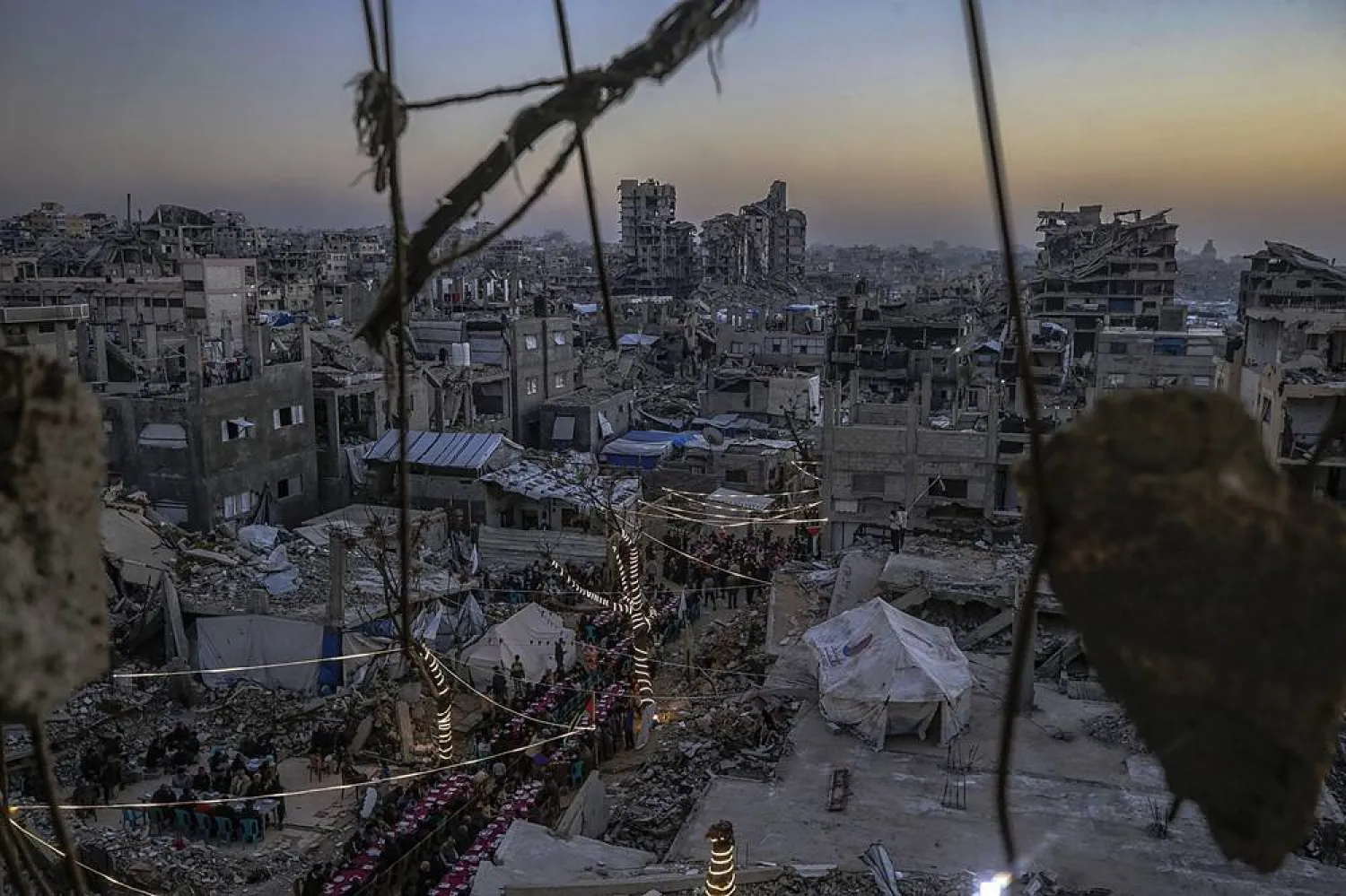Israel sent tanks deeper into Jabalia in the northern Gaza Strip on Tuesday and advised people to leave as it pounded the historic Palestinian refugee camp from the air, residents said.
Palestinian medics said casualties had been reported in Jabalia but they were unable to reach areas under fire.
Israel's army has said its forces are trying to stop fighters from the Hamas group staging further attacks from Jabalia and want to prevent them regrouping.
"Jabalia is being wiped out," was repeated in many messages posted on social media by residents of Gaza, who on Monday marked the first anniversary of the Israel-Hamas war, triggered by the Hamas attack on southern Israel on Oct. 7, 2023.
Palestinian health officials did not immediately provide new casualty figures but said dozens had been killed in the Gaza Strip in the past 24 hours. Israel's military said one soldier had been killed in combat in northern Gaza.
Later in the day, the Israeli military said it had detected and intercepted two launches of projectiles crossing Gaza, shortly after Hamas' smaller ally Islamic Jihad said it had fired rockets towards Sderot in nearby southern Israel.
In Gaza, the Israeli army issued new evacuation orders to residents of Jabalia and nearby Beit Hanoun and Beit Lahiya, telling them to head to a humanitarian-designated zone in Al-Mawasi in the south of the crowded coastal enclave.
The Indonesia, Kamal Adwan and Al-Awda hospitals in northern Gaza have also been asked to evacuate in the past 48 hours, World Health Organization officials told a briefing in Cairo. Fewer than half of Gaza's hospitals remain even partially functioning after a year of Israeli bombardments.
Palestinian and UN officials say there are no completely safe places in Gaza.
"Jabalia is being bombed as if the war has just begun and the world is blind about it," said Salah, 60, a father of five who is a resident of Gaza City.
"We live at least seven kilometers away, but the sounds of Israeli airstrikes and tank shelling deprive us of sleep. The world must stop Israeli crimes," he said via a chat app.
Israel, which is also in conflict with Hezbollah in Lebanon, says Hamas fighters use residential areas as cover in the densely populated territory, including schools and hospitals. Hamas denies this.
The armed wings of Hamas and Islamic Jihad said fighters had attacked Israeli forces in the north with anti-tank rockets, and that there were casualties among the Israeli troops.
The Israeli military said it had killed many Palestinian fighters, located weapons and dismantled military infrastructure in its operations in Jabalia.
Reuters was unable to verify the battlefield reports.
Israel began its offensive after Hamas-led fighters stormed across the border into southern Israeli communities on Oct. 7, 2023, killing 1,200 people and taking about 250 hostage, according to Israeli tallies.
Israel's ensuing offensive in Gaza has killed nearly 42,000 Palestinians, the enclave's health ministry says. Most of Gaza's 2.3 million people have been displaced and humanitarian conditions have deteriorated sharply.









